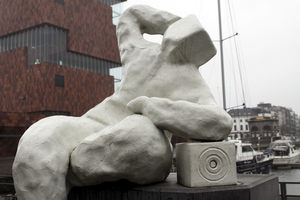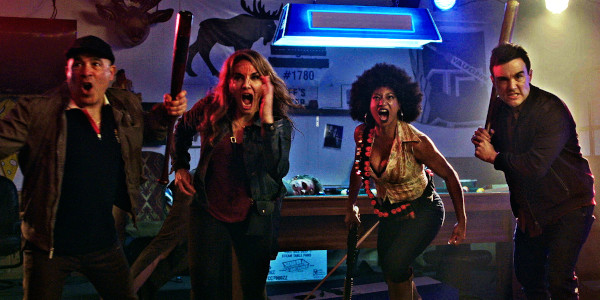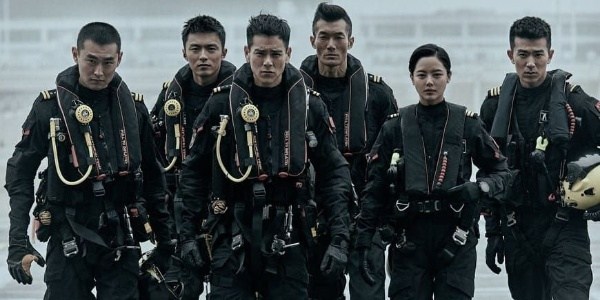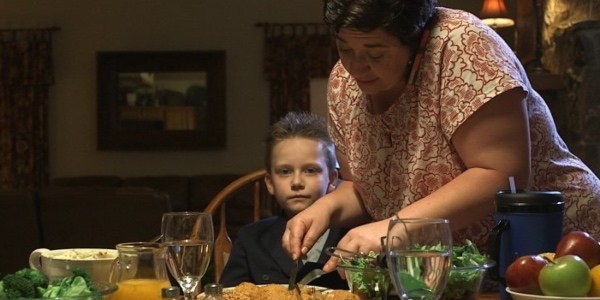MY PRINCE EDWARD: A Quietly Critical Examination Of Societal Norms
A few years ago, one would have gaffed at the idea of Stephy Tang being labeled as a serious thespian in the Hong Kong entertainment industry. But following her awards-worthy turn in 2017’s judo drama The Empty Hands, Tang punched her way into critical relevance and has now cemented herself with an even stronger performance in My Prince Edward. Norris Wong’s feature directorial debut is a quietly dramatic observation on the cultural nuances of everyday Hong Kong living. It’s a rather flawless piece of narrative filmmaking that provides hope to those yearning for a new generation of voices in Hong Kong cinema.
The film primarily takes place within Golden Plaza, a shopping centre that specializes in all things bridal related. Located in an area of Mong Kok known as Prince Edward, we’re introduced to Fong (Tang), who works at one of the plaza’s bridal rental stores. After receiving a proposal from her long-time partner, Edward (Pak Hon Chu), it’s revealed that Fong had previously engaged in a sham marriage with someone from Mainland China, for purely financial reasons. This collision of past secrets and cultural expectations sparks conflict in an already tenuous relationship. Supporting players come in the form of veteran Paw Hee Ching and singer Eman Lam.
Trapped in the web of societal norms
Depicting a sense of claustrophobia, both physically and mentally, isn’t hard when it comes to shooting within the locales of Hong Kong. Whether it’s the busy streets of central Kowloon or the micro-sized living quarters that house most of the region’s local citizens, the conceptualization of confined space is far from scarce. And in My Prince Edward, this realization of confinement is translated into the binding nature of societal norms. Specifically, the pressures of marriage, and all the cultural inferences that come with it, serve as the centerpiece of the film’s narrative.
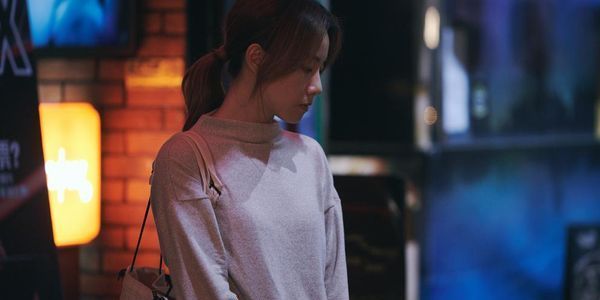
As Fong’s past nuptial history is fervently criticized by those around her, the film begins deconstructing the value that society places on the sanctity of marriage itself. In addition to questioning whether marriage is born out of love versus necessity, My Prince Edward also invites discourse on the pretense that marriage always seems to serve a purpose. Whether that purpose stems from financial gain (as with Fong’s first sham marriage) or familial appeasement (as with Fong and Edward’s current engagement), the concept of love seems to get thrown out of the equation. Wong invites audiences to question the motives of marriage but never criticizes it directly.
Much like Fong’s own persona, there’s a sense of acceptance that one must simply play with the hand they’re dealt with, and that certain freedoms are not fully attainable. Taken to another level, this aligns with the naming of ‘Prince Edward’ as a region in Hong Kong back in 1922 during Edward VII’s visit to the then British colony. The name itself continues to take hold today, despite its original meaning and intentions being completely lost on most who live or pass by that area. The same could be said about marriage itself and the antiquated purpose that it serves for many (and certainly not all!) who choose to pursue it.
A depiction of veiled toxic masculinity
Once Fong’s secret is revealed to Edward, their relationship takes an expected dip into much more rocky territories. And what’s surprising isn’t Edward’s hatred for his newly minted fiancé, as there is certainly reason for his changing affection towards her. What’s more interesting, however, is the degree of veiled toxic masculinity depicted through his actions. While never being overly abusive to Fong, it’s clear that Edward finds his own priorities and expectations to be levels above those of his partner. Even when he goes into a self-induced tantrum and is found screaming in an almost fetal-like position towards the end of the film, his emotional state doesn’t stem from his own internalized disappointment. The disappointment still stems from a subconscious condescension of women and the fact that he doesn’t have the level of control over Fong as he always thought.

The veiled nature of this toxicity is unique, and Chu does a remarkable job playing this out on screen. Edward is never portrayed as abusive in the usual manner that we’re accustomed to seeing on screen, but the entitled nature of dominant masculinity becomes clearer as the narrative progresses. Wong is careful in repressing some of the more traditional tendencies of toxic masculinity, and in doing so, reminds us of how innocuous it can sometimes appear.
Final Thoughts
There’s a lot of impressive talent both in front and behind the camera for My Prince Edward, with Wong shining bright as an emerging talent in Hong Kong cinema. The film evokes ideas that are grand and nuanced, while staying grounded in realism, and never faltering to any fantastical measures. Wong’s thoughtful approach helped take the film in this direction, and involving the likes of William Chang (editor) and Sing-Pui O (cinematographer) certainly didn’t hurt either. But there’s no question that Stephy Tang shines the brightest here, and truly solidifies herself as a talented actress (which she arguably already did with The Empty Hands). Her performance is one that feels quietly impactful, with layers of complexity that peel off throughout the film. Local productions in Hong Kong may not be thriving the way they used to, but a film like My Prince Edward brings hope to anyone who yearns for cinema from one of Asia’s most iconic and special regions.
Have you seen My Prince Edward? What did you think? Let us know in the comments below!
Watch My Prince Edward
Does content like this matter to you?
Become a Member and support film journalism. Unlock access to all of Film Inquiry`s great articles. Join a community of like-minded readers who are passionate about cinema – get access to our private members Network, give back to independent filmmakers, and more.
Join now!

